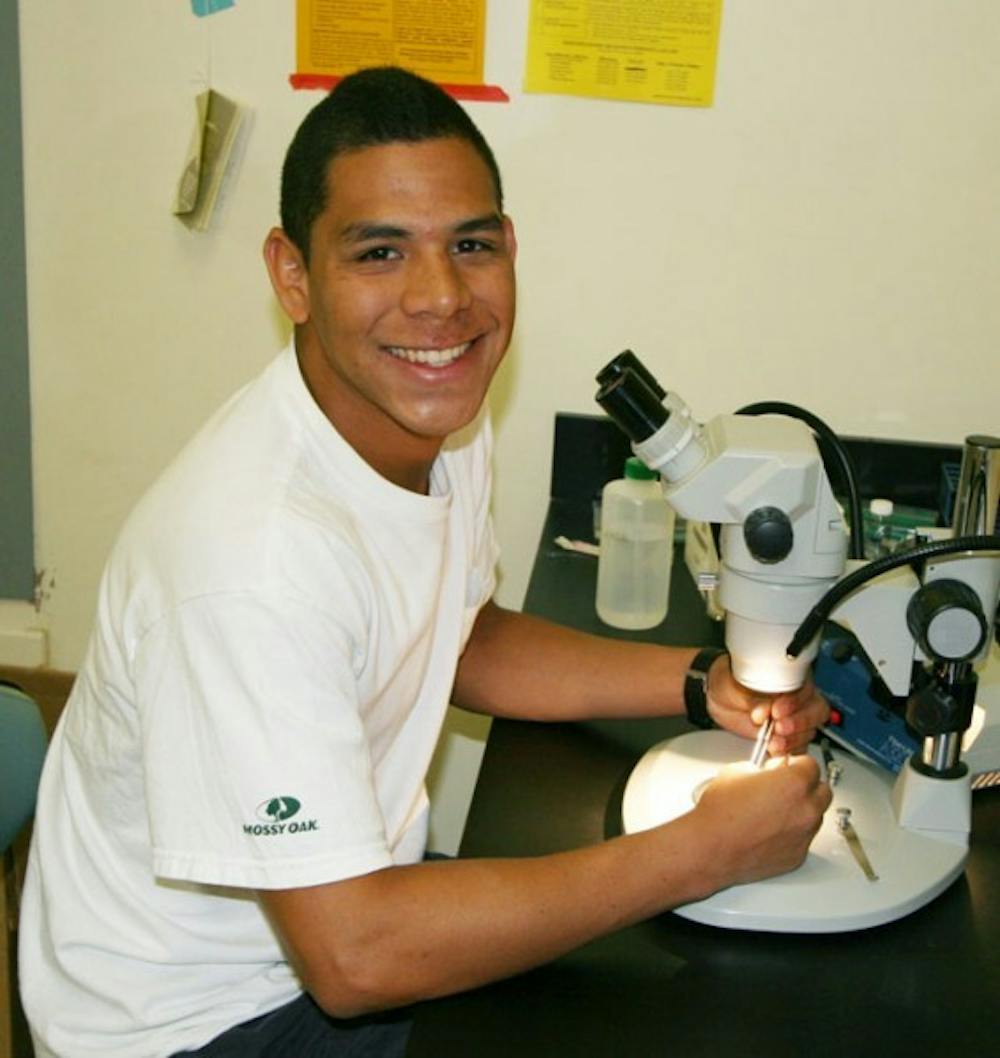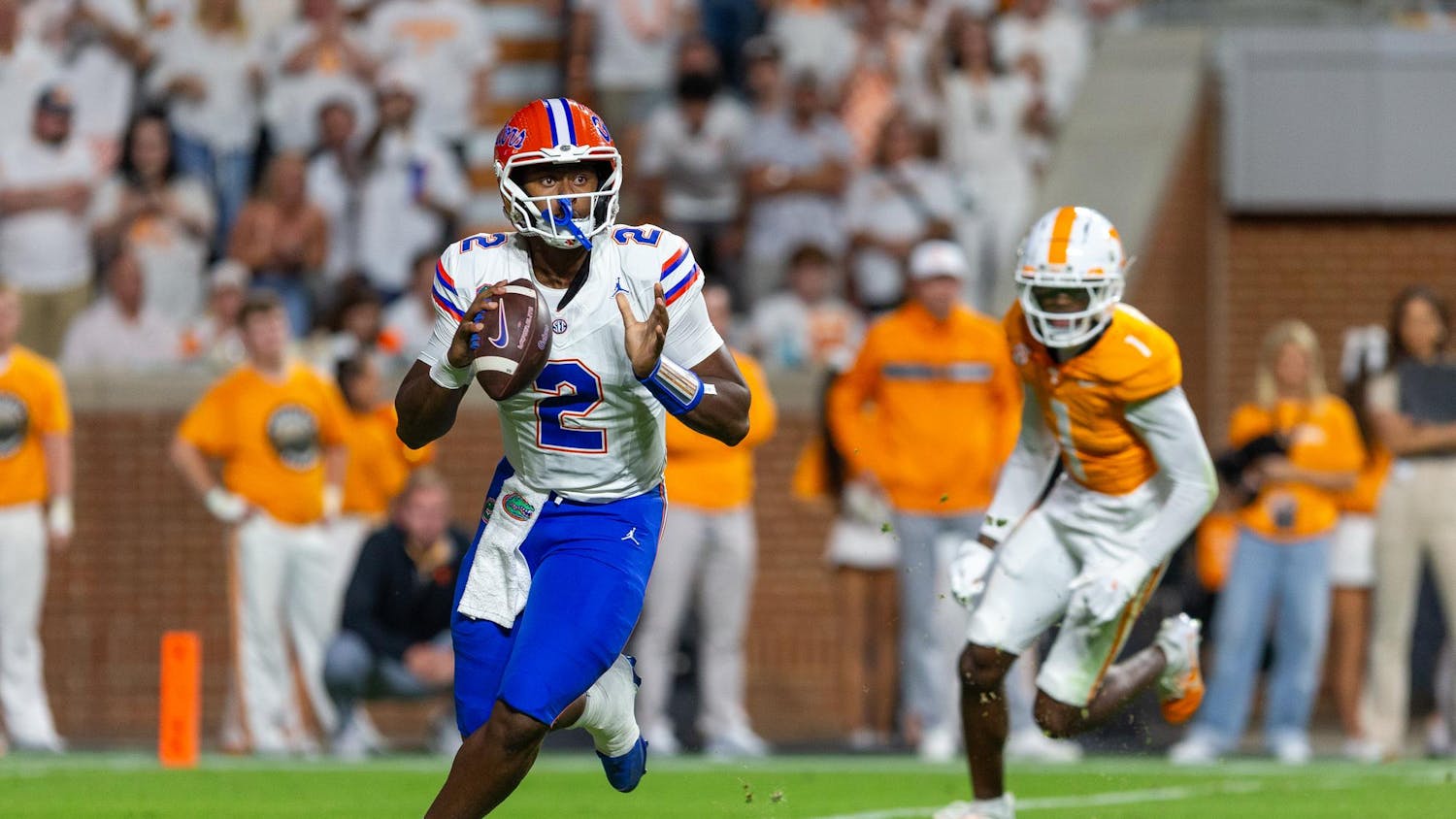David Cantu knows he cannot cure the world of infectious diseases.
But he can bring scientists and researchers a step closer to decreasing their occurrence.
During an 11-week summer research-training program at UF’s Whitney Laboratory for Marine Bioscience in Marineland, Fla., Cantu studied ways to reduce the threat of malaria- and yellow fever-carrying mosquitoes.
“I think I just have a passion for world health issues, and malaria is a big problem for most of the world,” Cantu said. “I’ve always been interested in how we can more effectively alleviate that threat.”
He cites the eight years he lived in his native Colombia and the four years he spent in China as reasons for his passion for world health issues.
Cantu, a UF microbiology junior, was one of eight students who participated in the Whitney Laboratory Research Experience for Undergraduates program funded by the National Science Foundation.
Cantu chose to study mosquito larvae and the way fluorescent-coded nanoparticles travel through their bodies.
Nanoparticles are made of silica and range in size between three to 40 nanometers and are ingested by the larvae.
One nanometer is equal to one-billionth of a meter, according to the website for the National Nanotechnology Initiative, a federal agency that coordinates federal nanotechnology research.
“I think I liked this project because it was more hands-on,” he said. “Also, I would be able to get more experience with the high-tech microscope. Microscope imaging could be fascinating.”
Cantu used a microscope to study the dissected larvae. The microscope was equipped with a fluorescent light, which made it easy to spot the nanoparticles.
Researchers hope that in the long run, these nanoparticles can be used to find a way to kill the larvae, thus reducing the number of disease-bearing mosquitoes.
“If we are able to decrease the vector of disease-carrying mosquitoes, we would have more control over disease transmittance,” he said.
Cantu said he left the Whitney Laboratory with both a better understanding of the importance of hands-on research and an appreciation for the mentoring he got from UF anatomy and biology professor Paul Linser.
“While I wouldn’t do research as a career, I think it is an important experience and skill every science student should take on,” Cantu said.






